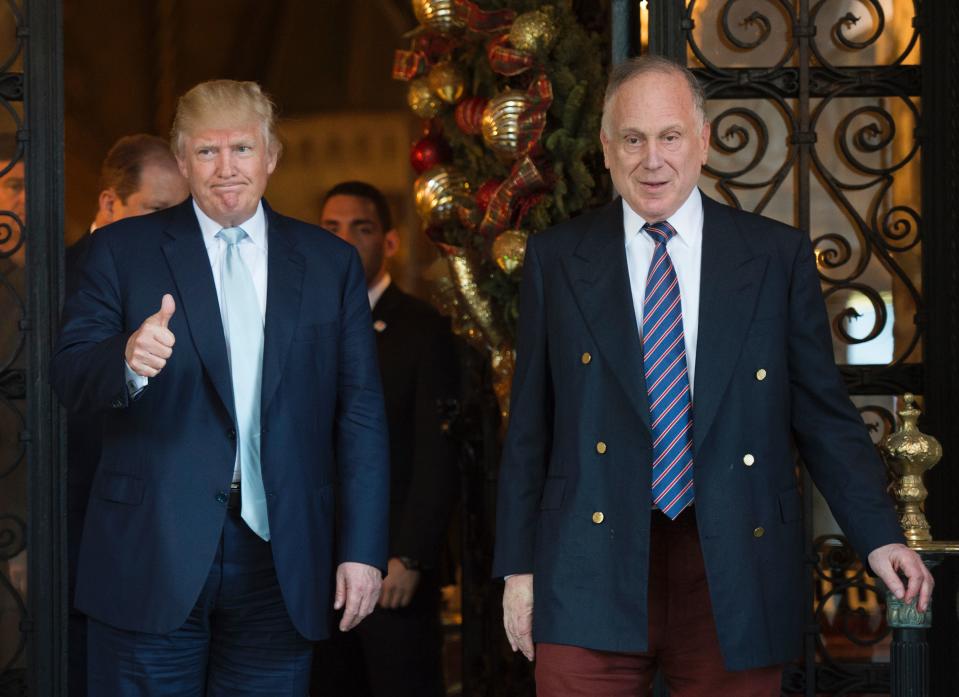Estee Lauder is latest target of anti-Trump boycott group
Earlier this month, SoulCycle, Equinox, Blink Fitness and PURE Yoga all came under fire when the public became aware that Stephen Ross, the owner of parent company Related Companies, planned to hold a reelection fundraiser for President Trump in the Hamptons.
The advocacy group that ignited that story, making the public aware of Ross and his connection to those companies, is called #GrabYourWallet.
Now the group is turning its sights on Estee Lauder, whose brands include Aveda, M.A.C., and Bumble & Bumble.
Ron Lauder, son of the beauty company’s founder Estee Lauder, is an Estee Lauder boardmember and president of the World Jewish Congress. He also donated $100,000 to the Trump Victory PAC in 2017.
Now #GrabYourWallet is urging the company to issue a statement that Ron Lauder will not contribute to Trump’s reelection efforts, and if it does, #GrabYourWallet will remove it from the boycott list. Estee Lauder did not reply to a request for comment.
Shannon Coulter started the #GrabYourWallet public boycott list soon after the 2016 election, at first urging voters to boycott companies that carried Trump products.
She says that since the list began, she has been able to remove 70 companies from the list because they have severed their financial ties to the Trump administration.
At current count, the list still has 31 companies, including Bank of America (funded Trump inauguration festivities), Charles Schwab (Schwab and his wife donated $1 million each to Trump’s Super PAC), LL Bean (boardmember Linda Bean supported Trump’s 2016 campaign) and New Balance (chairman Jim Davis donated $396,500 to Trump’s 2016 campaign).
“I think right now people are looking for ways to protest that they may not otherwise seek,” Coulter says, “simply because of the level of extremism, the racism, the xenophobia we see coming out of the White House.”

There’s just one potential problem for consumers: it isn’t always so easy to boycott.
In the case of Stephen Ross, the backlash soon extended to a range of smaller companies that Ross’s venture capital firm RSE Ventures has funded, including the Blue Stone Lane coffee chain and Momofuku restaurant chain.
Momofuku founder and chef David Chang responded to the Ross backlash on his podcast, “The Dave Chang Show.” He said, “I personally am a staunch opponent to President Trump and everything he stands for. I f**king hate him... Steve [Ross], if you're listening, and I know you listen to this podcast sometimes, I respect and admire you as a businessman...but I'm imploring you to reconsider hosting this fundraiser.” (Ross still went ahead and hosted the fundraiser.)
So: should anti-Trump consumers really extend their boycott to a business like Momofuku, even though Chang is clear about his opposition to Trump, because it has taken money in the past from Trump supporter Ross?
Coulter says yes.
“That was a hard one,” Coulter says. “But the hard truth of the matter is that if you do business with Momofuku, if you’re a customer of that restaurant, your money could end up in the pockets of somebody who’s going to turn around and use it to support the Trump administration. People need to know that. People want to have that information right now.”
Of course, it’s easy to tweet criticism of a business—much harder to follow through and cancel your Equinox membership over the political ties of its owner. Coulter says that when consumers support a business that has ties to Trump, however distant, “You support a man who questioned the nationality of our country’s first black president for five years and is separating children from their parents.”
Critics of such boycott tactics might say that the best way to show opposition to Trump is to vote for someone else in 2020. Coulter responds: “Voting is great, but it only happens every four years. With your wallet, you can vote every day.”
—
Daniel Roberts is a senior writer and on-air host at Yahoo Finance. Follow him on Twitter at @readDanwrite.
Read more:
Miami Dolphins owner's Trump ties land Equinox, SoulCycle in political hot water
Wayfair is the latest example of brands getting burnt by politics
Dunkin’ exec: ‘We are not Starbucks, we are not political’
German family that owns Krispy Kreme and Panera is reckoning with its Nazi past
From Tiki to Tic Tac, Trump era has forced consumer brands into politics
